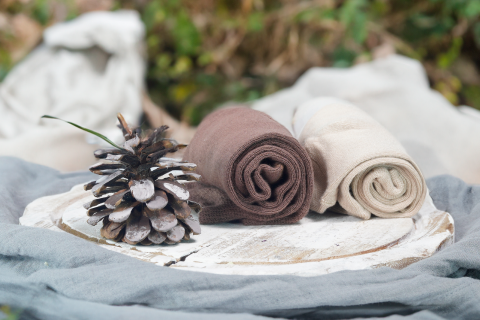Sustainability is no longer a passing trend—it’s a movement reshaping how we live and dress. The fashion industry, especially sock manufacturing, is leading this transformation. Today’s consumers want more than stylish products; they want ethical, eco-friendly socks that reflect care for both comfort and the planet.
This shift is pushing brands to rethink their production, materials, and packaging. Reducing waste, conserving resources, and prioritizing transparency have become the new standards. For sock makers, that means creating products that keep your feet cozy while helping the Earth breathe easier.

Why Sustainable Socks Matter
Traditional sock production often consumes large amounts of water and energy, especially during dyeing and finishing. Synthetic fibers derived from petroleum add to the problem—these materials take centuries to decompose and pollute waterways.
Choosing eco-friendly socks helps reduce this footprint. From organic cotton to bamboo, each pair represents a small but powerful step toward a more sustainable lifestyle.
The Impact of Conventional Sock Manufacturing
- Water Waste: Conventional dyeing can consume thousands of liters per batch.
- Chemical Pollution: Synthetic dyes and finishes often contaminate rivers and soil.
- Plastic Fibers: Nylon and polyester shed microplastics that harm marine life.
- Energy Use: Fossil-fuel-based materials increase carbon emissions.
Why Choose Eco-Friendly Socks?
Sustainable socks combine comfort, durability, and ethics. They’re made with natural or recycled fibers, biodegradable dyes, and minimal packaging. This approach benefits your feet—and the planet.
- Better for your skin: Natural fibers breathe and prevent irritation.
- Better for farmers: Organic cotton supports chemical-free farming.
- Better for the Earth: Less water and energy are used from start to finish.
Organic Cotton: The Sustainable Standard
Organic cotton is the foundation of modern sustainable sock production. It’s grown without toxic pesticides or synthetic fertilizers, preserving soil health and biodiversity. This farming method uses up to 90% less water than conventional cotton and protects farming communities from harmful exposure.
Consumers choosing organic cotton socks drive a positive cycle— encouraging more farmers and brands to adopt sustainable practices.
Beyond Cotton: Alternative Eco Materials
While organic cotton is essential, it’s not the only option. Other eco-friendly materials bring unique benefits:
- Bamboo: Naturally soft, antibacterial, and requires very little water.
- Hemp: Durable, breathable, and grows quickly with minimal land use.
- Tencel (Lyocell): Derived from sustainably sourced wood pulp, biodegradable and silky smooth.
- Recycled fibers: Polyester and nylon made from plastic bottles reduce landfill waste.
By blending these materials, manufacturers create socks that offer the perfect balance between comfort, function, and sustainability.
Hugh Ugoli’s Commitment to Sustainability
At Hugh Ugoli, sustainability is more than a concept—it’s a commitment. Our collections reflect eco-conscious values through ethical materials, durable design, and mindful packaging.
- Women’s Cotton Dress Crew Socks – made from organic cotton, combining breathable comfort with timeless style.
- Men’s Cotton Dress Seamless Toe Business Crew Socks – produced with eco-friendly fibers and plastic-free packaging.
Plastic-Free Packaging and Beyond
Sustainability doesn’t end with the product. Packaging plays a crucial role too. At Hugh Ugoli, we’ve replaced plastic with recyclable, compostable materials. Each small decision reduces waste and sets a higher industry standard.
Plastic-free packaging is more than a design choice—it’s a promise. It aligns with the values of eco-conscious customers and helps reduce global plastic pollution. Together, these small actions add up to meaningful environmental change.
The Future of Sustainable Sock Manufacturing
The future of eco-friendly sock manufacturing looks promising. With technological innovation and consumer awareness rising, sustainability is becoming a core expectation rather than an option.
Emerging trends include:
- Water-saving dyeing and low-impact finishing techniques.
- Energy-efficient production facilities powered by renewables.
- Fabric recycling programs that close the loop of textile waste.
- Increased use of regenerated nylon and recycled polyester.
These innovations are transforming the industry into a force for good—where comfort, style, and environmental care coexist.
Final Thoughts
The rise of sustainable socks is more than a fashion statement—it’s a movement towards conscious living. Every eco-friendly purchase supports a cleaner planet and a fairer future for all.
To explore more about responsible fashion, read our related post: Eco-Conscious Living: The Rise of Sustainable Sock Brands .
















